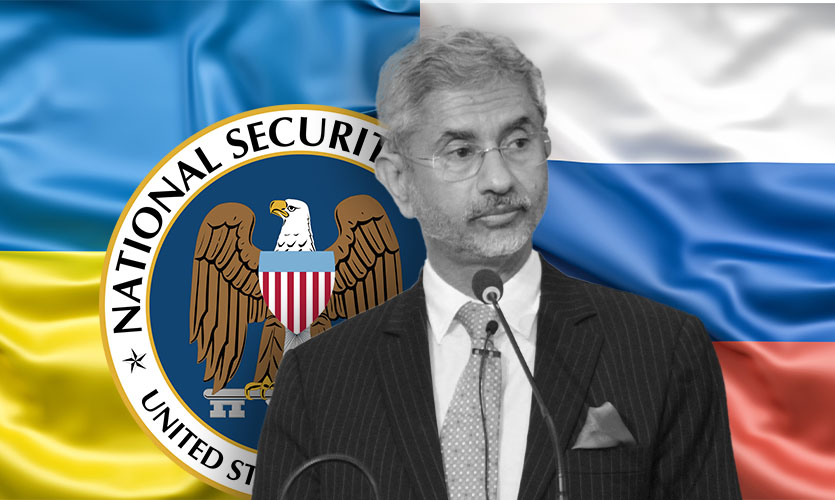External Affairs Minister Dr S Jaishankar met with United States National Security Advisor Jake Sullivan, to discuss the progress of the US-India strategic partnership, global and regional issues, and ways to advance a free, open, secure and prosperous Indo-Pacific region. He also discussed the Ukraine conflict with Sullivan during the meeting on Tuesday, at the White House, where the Indian minister is on a four-day official visit.
It was reported by Sullivan’s office that they met to review the progress of the US-India partnership, and to exchange views on global and regional priorities such as the implications of Russian aggression against Ukraine, and its impact on global food and energy security.
Dr Jaishankar was noncommittal on where India stood on Russia’s so-called ‘referendums’ in the four occupied regions of Ukraine. He did not answer the question when asked whether the so-called referenda are compatible with the principles of the United Nations Charter, which India stands by as per his speech to the UN General Assembly last week. He said that the issue would be discussed at the United Nations.
“I think it is an issue that will be coming up for consideration… My understanding is in the United Nations. So I would urge you to wait and see what our ambassador [Ruchira Kamboj] has to say,” he said at a press conference held for the Indian media, during his tour to the United States.
On Tuesday, US Ambassador Linda Thomas Greenfield announced that the country, along with Albania, would introduce a resolution on these ‘referendums’ at the UN Security Council. A ban on alterations to the Ukrainian status and the withdrawal of Russian troops from Ukrainian territory would be one of their demands. Consequently, if Russia, which has a veto at the UNSC, blocks the resolutions’ passage by the body, as is expected, the resolutions will be referred to the General Assembly.
India has abstained from resolutions censuring Moscow for its invasion of Ukraine, at the UNSC and the UNGA. The Indian government has not yet condemned the Russian invasion of Ukraine, but has maintained that diplomacy and dialogue should be used to resolve the crisis.
When Dr Jaishankar spoke with US Secretary of State Antony Blinken after the bilateral talks on Tuesday, he said that there were no difficulties in maintaining and supplying spare parts for the equipment that India had previously acquired from Russia, in the aftermath of the Ukraine war.
“I don’t think in recent months we have faced any particular problems in terms of servicing and spare parts supply of (military) equipment that we have got in the past from Russia,” Dr Jaishankar told reporters while responding to a question.
As a result of sanctions placed by the US and other countries on the Russian military industry, he was asked about India’s plans for military equipment, and if it would consider purchasing more equipment from the US or Israel.
“Where we get our military equipment and platforms from, that’s not an issue, honestly, which is a new issue or an issue which has particularly changed because of geopolitical tensions,” he said.
According to him, India examines opportunities around the world. “We look at the quality of technology, the quality of capability, the terms on which that particular equipment is offered, and we exercise a choice which we believe is in our national interest,” he said.
Between September 23 and 27, the Russian administration held a referendum each in Donetsk, Luhansk, Zaporizhzhia, and Kherson, which are part of Ukrainian provinces.
Moreover, in the readout, it was stated that they talked about measures to promote debt sustainability, and foster a free, open, safe, and prosperous Indo-Pacific, which is something that the US, India, and a number of other world powers have been talking about in light of China’s increasing military manoeuvring in the area. Taiwan, the Philippines, Brunei, Malaysia, and Vietnam, all have territorial claims in the disputed South China Sea, but China claims almost all of it, and has erected military outposts and artificial islands in the area.










